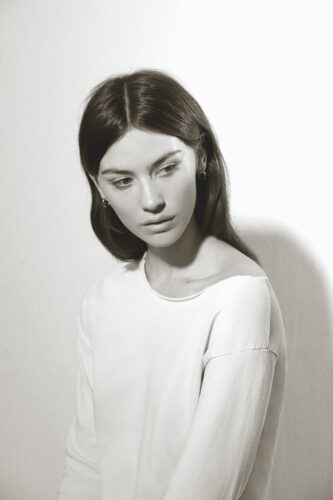Details
‘I was bored out of my mind, lost my whole appetite, when I could come to life… I didn’t’. Over a deceptively plucky guitar, Gracie Abrams sings with such softness it’s almost a whisper. ‘Where do we go now?’ is emblematic of Gracie’s debut album, Good Riddance: tear-jerkingly candid pop that is deeply personal, while also feeling like a future stadium singalong.At just 23, Gracie already has two EPs under her belt, but Good Riddance marks a coming of age. Written in the summer of 2021, it followed a period of extensive touring (two headline runs, as well as supporting Olivia Rodrigo on the US leg of her Sour tour) – and intensive therapy, where she came to terms with the breakdown of a seven-year relationship in the midst of a pandemic. The result gave way to a bold performer, a much savvier songwriter and an artist who is as resilient as she is relatable.
Finding a new way of working, Gracie enlisted The National’s Aaron Dessner (Taylor Swift, Bon Iver, Sharon Van Etten). Where previously, she would pen diary-like ballads from her bedroom, she switched her intimate setup for his studio in upstate New York, escaping the city and finding herself surrounded by nature felt like a much-needed shift. She was able to challenge herself sonically, with a more complex approach to production. ‘I felt like it suited where I’m at today, versus the version of myself that has been writing music alone for my entire life. It felt like a shift, one that was appropriately challenging and allowed me to have more of an imagination about everything across the board from themes to production.’Working with the Grammy award-winner, Gracie found herself able to break out of her comfort zone. ‘My relationship with Aaron is one that’s so open, I had no fear about being vulnerable at all. We were working in the moment: I cared less about the final product, and more about being as accurate about my feelings as I could. Being able to lean on Aaron, as I was dealing with my own shit was a pillar in my life; hopefully the music is reflective of that.’
In the album, Gracie wrestles with love, loss and the power of healing. Though she is searingly honest about heartbreak, there’s a strong sense of self-discovery and adventure weaved through the more melancholic moments. ‘I was getting bored of writing about myself in relation to other people in the way that I had been for years. I’ve always relied on songwriting to work through experiences and feel like I’d done something about a situation, but that contributed to a pattern of using songwriting as an outlet to sometimes solely talk about those relationships. In the album, I got to look at my relationship with myself.’In ‘I know it won’t work, a rousing, Taylor Swift-esque ballad, she explores that idea of post breakup newness. ‘It’s really hard walking away from a relationship when you still really care, when there’s so much history, and your lives are so intertwined: it can feel so heavy. The reason that therapy was so important, and why I talk about it at shows is because it made such an impact on my life, and allowed me to be aware of what was really going on.’
Gracie grew up in a household where creativity was constantly encouraged. Storytelling had always been an important part of her life. Gracie’s earliest influences come in the form of singer songwriters from Joni Mitchell to Taylor Swift, ‘The artists that I have loved and admired forever are because of their brutal honesty. It’s their words that made me really love music and feel like I was connecting to them on a deeper level.’ But for Good Riddance she wanted to shut out the noise. She swapped her pop palette for classical music and ambient albums. ‘Because of what the year has been in terms of touring and all of these general shifts in my personal life, I wanted to have as much quiet as possible, especially l while making the album. I didn’t want it to feel like anything else.’It’s been a long time coming for an artist who penned her first song when she was eight. Ever since, songwriting became her vehicle to process difficult emotions. ‘I turned to music when I realised that emotionally, it was an outlet. For a long time, that made me want to keep it super private. I never thought about becoming an artist, I just found out that I loved writing more than anything. It made me feel better’.
The decision to share her innermost sentiments isn’t one she took likely, but after putting up early videos on YouTube, she quickly amassed millions of views and grew a loyal fanbase (including the likes of Olivia Rodrigo, Lorde and Taylor Swift) who connected with her vivid and vulnerable lyrics and beguiling vocals. Her debut 7-track EP, Minor, centered her as a bedroom popstar with limitless potential. Tracks like Tehe and 21 are blissful celebrations of the highs and lows of youth, demonstrating her deft Robyn-esque ability to make heartbreak anthems that belong on dancefloors.‘I put out my previous EP at a time where I was really personally going through it. I felt pretty disconnected from myself and the people in my life until I really committed to consistent work on myself’ she admits. With her debut album, things couldn’t be more different. She’s toured stadiums and got to see first hand the way her confessional songs have impacted fans. She’s overcome heartbreak and written an album that packs her most urgent punch yet. ‘It is, by far, the most I’ve ever wanted to stand behind something.’
